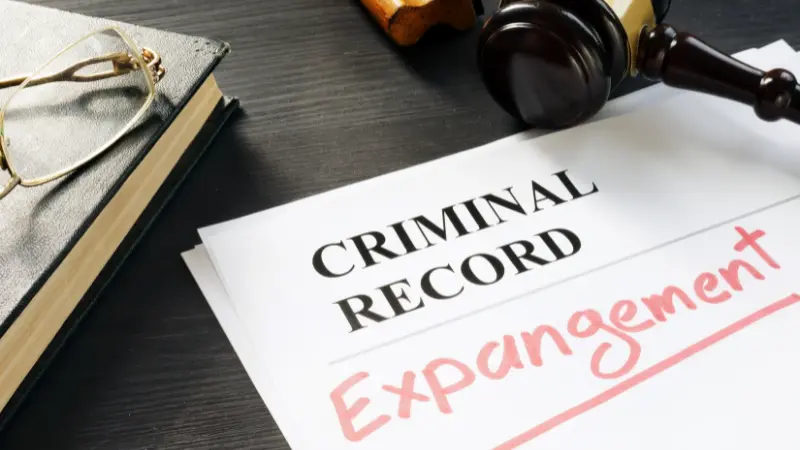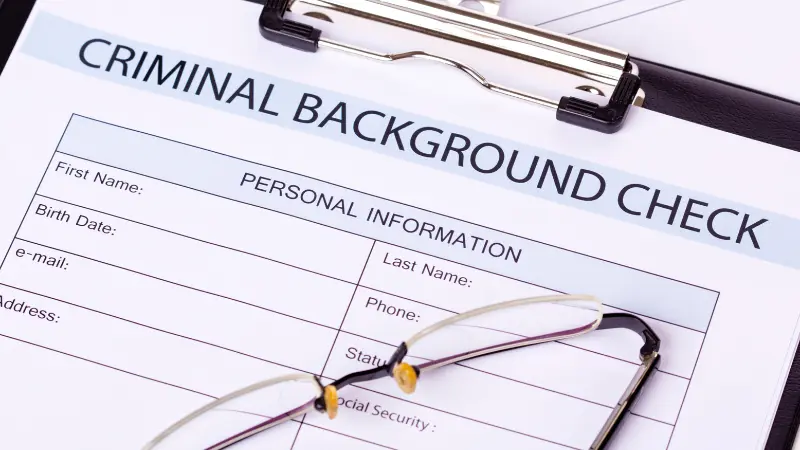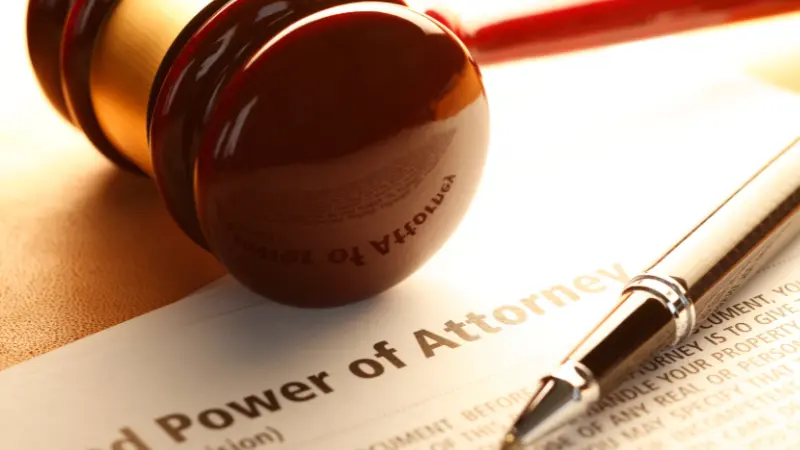Having a criminal record can have a profound impact on a person’s life. It hinders employment opportunities, housing options, and their ability to obtain specific licenses. Fortunately, in many states, individuals with a criminal record can petition to have their record expunged. This article will provide an in-depth guide to expungement, including eligibility criteria, the step-by-step process for applying for expungement, benefits, and limitations of expungement, alternative options, and frequently asked questions. Whether you are seeking expungement: how to clean a criminal record or simply want to learn more about the process, this article will provide you with the information you need.
What Is Expungement: How To Clean A Criminal Record?

Expungement is the legal process of erasing criminal convictions or arrests from a person’s record. This means that the conviction or arrest will no longer be visible on background checks, and the person will be able to legally deny or state that they have no criminal record.
In the common law legal system, an expungement proceeding is a type of lawsuit in which an individual who has been arrested for or convicted of a crime seeks that the records of that earlier process be sealed or destroyed, making the records nonexistent or unavailable to the general public. If successful, the records are said to be “expunged”. Black’s Law Dictionary defines “expungement of record” as the “Process by which record of criminal conviction is destroyed or sealed from the state or Federal repository – Wikipedia.
Importance Of Expungement
A criminal record can be a stumbling block in a person’s life. Especially in the aspect of housing, employment, and general judgment of character from people. It can also result in social stigma and discrimination. Expungement allows individuals to move forward from past mistakes and have a fresh start in life.
Some professions require background checks or prohibit licensing for people with criminal records. Expungement can help clear the way for people to pursue these careers.
Expungement can also help restore certain rights and privileges that were lost due to a criminal conviction, such as the right to vote, serve on a jury, or own firearms. This can provide a sense of closure and a fresh start for people looking to move forward with their lives.
It is a valuable tool for individuals looking to move forward from their past criminal convictions. However, there are certain limitations to expungement that should be considered before pursuing the process.
Read what background checks show.
Eligibility For Expungement
Several factors can impact a person’s eligibility for expungement, including the nature and severity of the offense, the length of time since the offense, and whether the person has completed any related sentences or obligations, such as probation or fines.
The types of crimes that can be expunged vary by state and jurisdiction. In general, non-violent misdemeanors, some low-level felonies, and juvenile offenses may be eligible for expungement. However, certain crimes such as sex offenses and violent crimes are typically not eligible for expungement.
Process For Applying For Expungement
Step-by-Step Guide to clearing a criminal record varies by state, but typically involves the following:
- Gathering Necessary Documents
The first step in applying for expungement is to obtain all necessary documents, including court records, police reports, and any other documentation related to the case. It is important to ensure that all information is accurate and up-to-date.
- Filing the Petition
Once all necessary documents have been gathered, the expungement petition must be filed with the appropriate court. This may require the assistance of an attorney or legal aid organization.
- Attending the Hearing
A hearing will be scheduled. The petitioner must attend the hearing and provide evidence to support their case. The judge will ultimately decide whether or not to grant the expungement.
Some common challenges with expungement include long wait times, complex legal requirements, and difficulty tracking down necessary records or documentation. Working with a legal professional and staying organized can help mitigate these challenges.
Disclosure Requirements

Even if your criminal record has been expunged, certain entities such as government agencies, law enforcement, and the military may still be able to view your past convictions. Additionally, some employers may require disclosure of expunged records on job applications. It’s important to research the laws and regulations in your state regarding disclosure requirements.
Expungement only applies to certain types of background checks. For example, if you are applying for certain professional licenses or government positions, the agency may still be able to access your criminal record even if it has been cleared.
Effect On Immigration Status
Expungement may not impact your criminal record for purposes of immigration laws. If you are an immigrant seeking legal status, it’s important to consult with a knowledgeable immigration attorney to fully understand the potential impact of expungement on your immigration status.
Expungement And Firearms Rights
Expungement may not restore your right to possess firearms if your conviction was for a felony or violent crime. Again, it’s important to research the laws in your state before pursuing expungement.
Expungement and Employment Opportunities
A major reason why individuals pursue expungement is to improve their job prospects. Expungement can help remove certain barriers to employment that exist for individuals with criminal records.
How Expungement Affects Job Applications
In most cases, individuals with expunged records do not have to disclose their past criminal history on job applications. However, certain employers may still be able to access your criminal record and use it as a factor in the hiring process. It’s important, to be honest, and upfront about your past convictions if asked in an interview.
Legal Protections For Employees With Expunged Records
In some states, individuals with expunged records are protected from discrimination in the workplace. These protections may include the ability to sue an employer who illegally discriminates based on a past criminal record. Again, it’s important to research the laws in your state to fully understand your rights as an employee.
Alternative Options For Expungement
Alternative options for expungement can also help individuals with criminal records.
- Pardons
A pardon is an official forgiveness of a criminal offense by the government. While a pardon does not erase the conviction from your record, it can restore your civil rights, such as the right to vote or hold public office.
- Sealing Criminal Records
Sealing criminal records is another option that can help to limit who can access your criminal history. Sealed records are typically only available to law enforcement and certain government agencies.
Hire An Attorney

While it is possible to pursue expungement on your own, it can be a complex and time-consuming process. Hiring an attorney who specializes in criminal defense and expungement can help make it smoother.
An attorney can guide how to properly complete the necessary paperwork and navigate the legal system. Additionally, an attorney can represent you in court if necessary and can advise you on how to respond to questions from employers or licensing agencies.
The cost of hiring an attorney for an expungement case can vary depending on the complexity of the case and the attorney’s experience. However, many attorneys offer payment plans or reduced fees for those who cannot afford the full cost.
Frequently Asked Questions About Expungement
What Is The Difference Between Expungement And Sealing Of A Criminal Record?
The terms “expungement” and “sealing” are often used interchangeably, but they refer to two different processes. Expungement involves the destruction of a criminal record while sealing involves restricting access to the record. In some cases, sealing may be a more appropriate option than expungement, depending on the details of the case and the individual’s goals.
What Crimes Cannot Be Expunged?
Typically, crimes such as murder, sexual assault, violent offenses, and crimes involving children, cannot be expunged in most states. Additionally, some states may have specific limitations on which types of crimes can be expunged.
How Long Does Expungement Take?
The length of the expungement process can vary depending on the state and the complexity of the case. Some cases may be completed in as little as a few months, while others may take over a year.
Does Expungement Apply to Juvenile Records?
Many states do allow for the expungement of juvenile records. In some cases, the process may be simpler and faster than for adult records. It is important to check your state’s laws to determine whether expungement is available for juvenile records. It is important to check with an attorney or local court to determine if and how juvenile records can be expunged.
Do Juveniles Get Convicted Of A Felony?
Can An Expunged Record Still Be Used Against Me In Court?

While the process removes the record of a criminal offense from public view, it does not completely erase the offense. In some cases, an expunged record can still be used against you in court, such as in certain criminal proceedings or when applying for certain types of licenses or certifications. It is important to understand the specific limitations of expungement in your state and jurisdiction.
What Are The Costs Of Expungement?
The costs can vary depending on the state and the complexity of the case. In some cases, you may be able to complete the process on your own, without the assistance of an attorney or other professionals. In other cases, you may need to pay for legal fees, court costs, and other expenses. It is important to research the costs of expungement in your state and determine if it is a feasible option for you.
Summary
Expungement laws are constantly evolving, and a growing movement is advocating for expanded access to expungement. Many states have already passed laws making it easier for individuals to seal or expunge their criminal records. It’s important to stay informed about changes to these laws and how they may impact your ability to pursue expungement. In conclusion, expungement can provide a much-needed fresh start for individuals with a criminal record. While the process can be complex and time-consuming, the benefits are often worth the effort. If you are considering expungement, it is important to consult with an experienced attorney who can guide you through the process and ensure that your rights are protected. With the right information and support, you can take the necessary steps to move forward with your life and leave your criminal record behind.

I’m Cli, also known as Castro. An author of felhus.com
I’ve got great passion for felons and wanna see them live absolutely normal again.
